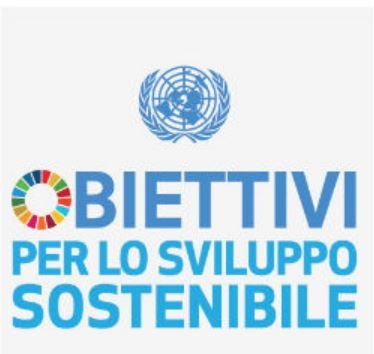I servizi ecosistemici nell'Agenda 2030 delle Nazioni Unite
01/12/2015
The 2030 Agenda for Sustainable Development è stata adottata dalla Assemblea Generale delle Nazioni Unite il 25 settembre 2015.
L'Agenda 2030 è un piano di azioni volte a promuovere la prosperità delle persone e del pianeta. Indica 17 Goal. Benchè proposta come evento storico ci pare non abbia avuto grande risonanza nei media.
Il Segretario Generale delle Nazioni Unite, Ban Ki-moon, ha affermato: “La nuova agenda è una promessa da parte di tutti i leader nei confronti di tutte le persone del mondo. L’agenda rappresenta una visione universale, integrale e transformativa per un mondo migliore. [. . .] La vera prova dell’impegno verso l’Agenda 2030 riguarderà la sua implementazione. Abbiamo bisogno dell’azione da parte di tutti e da tutto il mondo. I 17 obiettivi per lo sviluppo sostenibile sono la nostra guida. Essi rappresentano una lista da seguire per le persone e per il pianeta, una vera guida verso il successo”.
Pre quanto riguarda gli obiettivi di incrementare la salute del Pianeta TERRA è interessante notare come gli ecosistemi e i loro servizi sono al centro delle azioni di sostenibilità promossi. La capacità dei ecosistemi di produrre benefici e la condivisione di questi servizi tra i popoli sono alla base dell'idea di sviluppo sostenibile promosso dalla Agenda 2030.
Riportiamo il quindicesimo: Goal 15. Proteggere, restaurare e promuovere l'uso sostenibile degli ecosistemi terrestri, gestire in modo sostenibile le foreste, lotta alla desertificazione, e fermare e invertire il degrado del suolo e arrestare la perdita di biodiversità
Goal 15. Protect, restore and promote sustainable use of terrestrial ecosystems, sustainably manage forests, combat desertification, and halt and reverse land degradation and halt biodiversity loss
15.1 By 2020, ensure the conservation, restoration and sustainable use of terrestrial and inland freshwater ecosystems and their services, in particular forests, wetlands, mountains and drylands, in line with obligations under international agreements
15.2 By 2020, promote the implementation of sustainable management of all types of forests, halt deforestation, restore degraded forests and substantially increase afforestation and reforestation globally
15.3 By 2030, combat desertification, restore degraded land and soil, including land affected by desertification, drought and floods, and strive to achieve a land degradation-neutral world
15.4 By 2030, ensure the conservation of mountain ecosystems, including their biodiversity, in order to enhance their capacity to provide benefits that are essential for sustainable development
15.5 Take urgent and significant action to reduce the degradation of natural habitats, halt the loss of biodiversity and, by 2020, protect and prevent the extinction of threatened species
15.6 Promote fair and equitable sharing of the benefits arising from the utilization of genetic resources and promote appropriate access to such resources, as internationally agreed
15.7 Take urgent action to end poaching and trafficking of protected species of flora and fauna and address both demand and supply of illegal wildlife products
15.8 By 2020, introduce measures to prevent the introduction and significantly reduce the impact of invasive alien species on land and water ecosystems and control or eradicate the priority species
15.9 By 2020, integrate ecosystem and biodiversity values into national and local planning, development processes, poverty reduction strategies and accounts
15.a Mobilize and significantly increase financial resources from all sources to conserve and sustainably use biodiversity and ecosystems
15.b Mobilize significant resources from all sources and at all levels to finance sustainable forest management and provide adequate incentives to developing countries to advance such management, including for conservation and reforestation
15.c Enhance global support for efforts to combat poaching and trafficking of protected species, including by increasing the capacity of local communities to pursue sustainable livelihood opportunities

